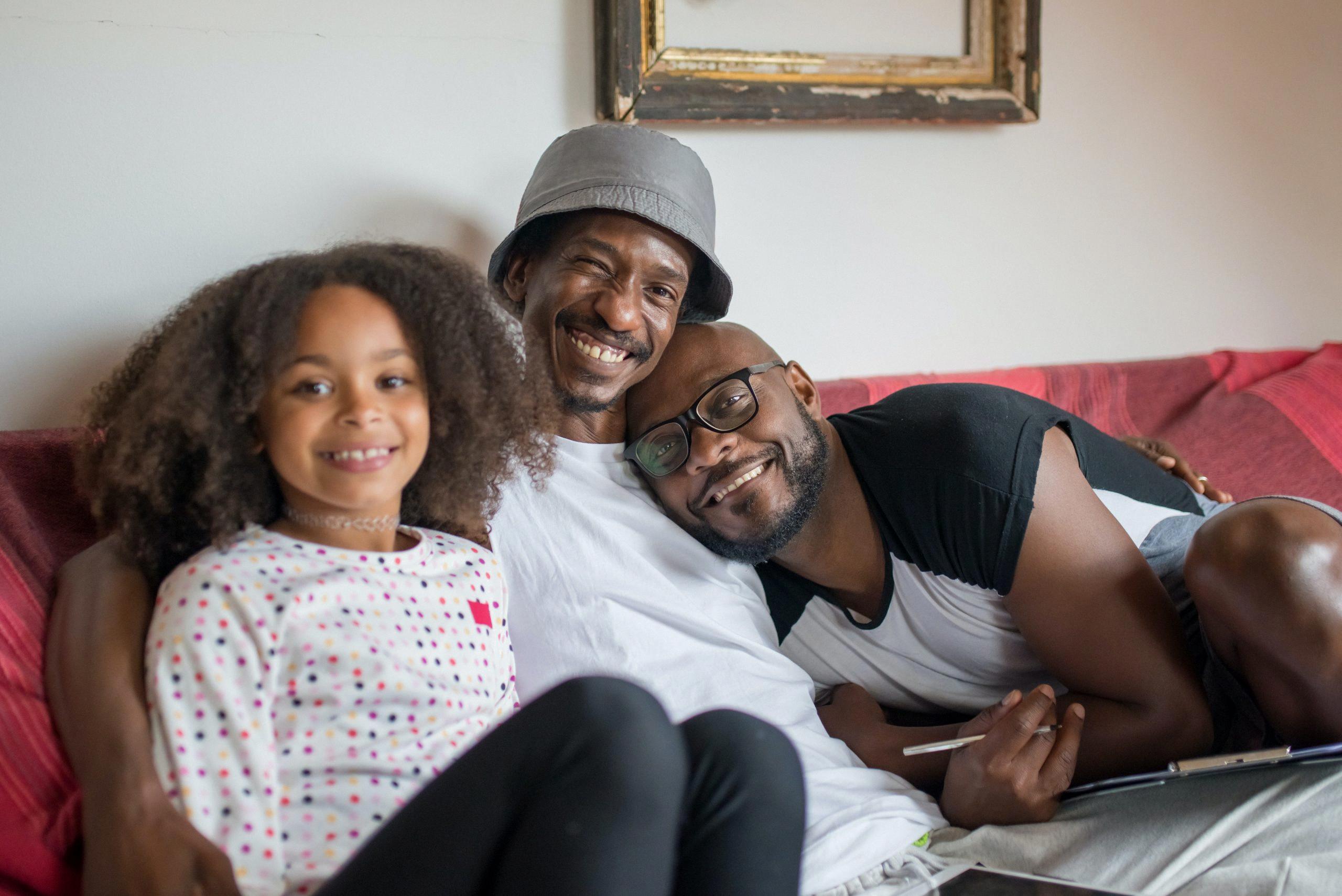The family of orientation is an essential aspect of an individual’s life. It is the family in which a person is born and raised, and it plays a significant role in shaping their development and personality. This family unit is where individuals learn basic skills, values, and beliefs that will influence them for the rest of their lives.
Families of orientation are responsible for providing an environment where children can thrive and grow into healthy, well-adjusted adults. They are the first socialization agents in a person’s life, and they introduce them to cultural norms, traditions, and customs. As a result, the family of orientation is crucial in shaping an individual’s identity.
The family of orientation encompasses the primary caregivers, including parents, grandparents, siblings, and other close relatives. This family unit provides emotional support, love, and a sense of belonging that is crucial for a child’s healthy development. Studies have shown that the quality of the family environment can significantly impact a person’s mental health and well-being.
The family of orientation is also responsible for providing basic needs such as food, shelter, and clothing. They are responsible for meeting a child’s physical needs, which is critical for their survival and growth. As children grow older, the family of orientation also provides educational opportunities and helps them develop their social skills.
Additionally, the family of orientation is responsible for teaching children essential life skills such as communication, problem-solving, and decision-making. These skills are invaluable in adulthood when individuals must navigate complex social and economic systems.
The family of orientation is a critical aspect of an individual’s life. It shapes their development, personality, and identity. It provides emotional and physical support, teaches essential life skills, and introduces them to cultural norms and traditions. Therefore, it is essential to create a healthy and supportive family environment that fosters a child’s growth and development.
The Meaning of Family of Procreation
The term “family of procreation” refers to a family unit created by two or more individuals who have formed a new family. Unlike the “family of origin,” which refers to the family an individual is born into, the family of procreation is the family that is formed through marriage, cohabitation, or adoption. This type of family unit is distinct and separate from the family an individual was born into, as it is formed through the bond of love and commitment between its members. The family of procreation will have its own unique values, traditions, and dynamics, which will be shaped by the individuals who form it. It is important to note that families of procreation can take many forms, including blended families, same-sex families, and single-parent families. Ultimately, the family of procreation represents a new chapter in an individual’s life, where they can create a new family unit that reflects thir own values and beliefs.

Source: eachother.org.uk
The Origin of the Concept of Family of Orientation
The concept of family of orientation was given by George Peter Murdock, who was an American anthropologist and sociologist. In his famous book “Social Structure”, Murdock distinguished between two types of nuclear families- the family of orientation and the family of procreation. The family of orientation refers to the family in which an individual is born, reared, and socialized. It is the family that provides the primary socialization experiences and shapes an individual’s attitudes, values, and beliefs. Murdock’s concept of family of orientation has been widely used in the fields of sociology, anthropology, and psychology to study family dynamics and ther impact on individual development.
The Meaning of Family of Orientation and Procreation
Family of orientation refers to the family you were born into, which includes your parents, siblings, and any other relatives in your household during your childhood. This family is considered the family of origin, as it is the firt family you are exposed to and with whom you develop an emotional and social connection.
On the other hand, family of procreation refers to the family you create through marriage, partnership, or by having or adopting children. This family is formed by your own choice, and it includes your spouse, children, and any other relatives you may gain through marriage or adoption.
The family of orientation is the family you were born into involuntarily, while the family of procreation is the one you create through your own choices and actions. Both families play an important role in shaping your identity, beliefs, and values, and they can have a profound impact on your life.
Types of Families
There are actually more than 4 types of families, as family structures can vary greatly depending on cultural, social, and economic factors. However, four common family types are nuclear families, single-parent families, extended families, and blended families.
Nuclear families are composed of two parents and their children living together in the same household. This is considered the traditional family model in many Western societies.
Single-parent families consist of one parent raising one or more children on their own. This can be due to various reasons, such as divorce, death of a partner, or the choice to have children without a partner.
Extended families include multiple generations living together, which may include grandparents, aunts, uncles, and cousins. This type of family structure is often found in non-Western cultures.
Blended families, also knwn as stepfamilies, are formed when two people with children from previous relationships come together to form a new family unit. This type of family structure can pose unique challenges, such as establishing new roles and relationships within the family.
It is important to note that there are many other family types, such as grandparent families, childless families, and same-sex parent families, among others. Every family is unique, and it is important to recognize and respect the diversity of family structures in our society.
The Importance of Family Orientation
Family orientation is a crucial value that places the well-being and needs of the family at the forefront of decision-making. It involves prioritizing familial relationships, responsibilities, and commitments over personal interests and desires. Family-oriented individuals are knon for their selflessness, dedication, and willingness to sacrifice their own needs for the sake of their loved ones.
The value of family orientation lies in its ability to foster strong family bonds, promote mutual support, and create a sense of belonging and security. It helps to create a stable and nurturing environment for children, enhances communication and understanding among family members, and strengthens the family’s ability to cope with challenges and adversity.
Moreover, family orientation has been linked to numerous positive outcomes such as increased life satisfaction, better mental health, and improved overall well-being. It provides a sense of purpose and meaning, and reinforces the importance of family values such as love, respect, and compassion.
Family orientation is a valuable trait that promotes healthy family relationships, enhances personal growth, and contributes to a fulfilling and meaningful life.

Source: goodtherapy.org
What Does it Mean to be Family Oriented?
Being family oriented means that a person places their family at the center of their life and decision-making. It involves prioritizing the well-being of the family as a whole and considering their needs and interests in any decision made. A family-oriented person typically values the importance of strong family relationships and invests time and effort into maintaining them. They may also prioritize spending time with their family and participating in activities together. Ultimately, a family-oriented individual is someone who places great importance on their family and takes steps to ensure its happiness and success.
The Importance of Family-Oriented Values
Family-orientedness is important for several reasons. Firstly, it helps to build stronger bonds between family members. When individuals prioritize the needs and interests of their family, they tend to develop a deeper sense of connection and belonging with those around them. This also leads to a greater sense of unity, which can help families weather difficult times and overcome challenges together.
Secondly, family-orientedness promotes greater support and care within the family unit. When family members prioritize each other’s wellbeing, they are more likely to provide emotional, financial, and practical support when needed. This can be especially important during times of illness, loss, or other crises.
Thirdly, being family-oriented can help individuals prioritize what truly matters in life. By focusing on the needs and interests of their family, individuals are less likely to get caught up in materialistic or superficial pursuits. Instead, they can find fulfillment in the simple pleasures of spending time with loved ones and building meaningful relationships.
Family-orientedness is important becuse it promotes stronger bonds, greater support, and a deeper sense of purpose and fulfillment in life.
Conclusion
The family of orientation plays a crucial role in shaping an individual’s personality, values, and socialization. It is the family in which an individual is born and raised, and it influences the person’s beliefs, attitudes, and behavior. The family of orientation provids emotional, social, and economic support to an individual in their formative years, and it lays the foundation for their future relationships. Understanding and maintaining a positive relationship with one’s family of orientation is essential for personal growth and development. Therefore, it is important to recognize the significance of family of orientation in shaping our lives, and to cherish and maintain healthy relationships with our family members.
